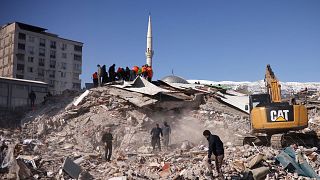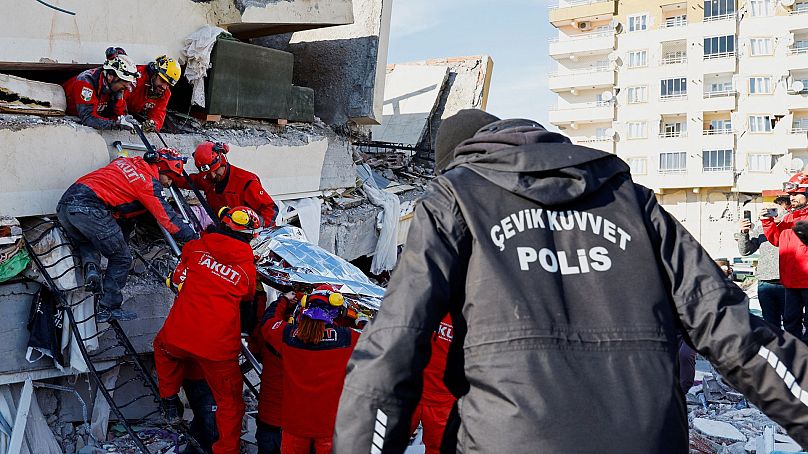Details on travel to the region and donations appeals launched by the travel industry.
Travellers should continue to avoid Syria and parts of Turkey, UK authorities have warned, but there are many places would-be helpers can donate.
The death toll from the devastating earthquakes struck Turkey and Syria that struck is at 20,700 and rising. The disaster is on record as the world’s deadliest earthquake since 2010.
While travel is not top of the agenda amongst the devastation, it’s important for travellers to be informed. Visitors could also help the country’s economy to recover. Here’s everything you need to know.

Where did the earthquake strike?
The Kahramanmaras earthquake was felt throughout southeast Turkey and north Syria.
The first earthquake hit the southeastern city of Gaziantep at 4.17 am local time.
A second quake – with a 7.5 magnitude – struck hours later between the cities of Ekinözü and Malatya. Throughout Monday, surrounding regions were hit by at least 20 aftershocks. There have been several more earthquakes in the same areas since.
Can you travel to Turkey and Syria?
Turkey’s most popular cities with international travellers – Ankara and Istanbul – are in the west of the country, hundreds of kilometres away. Travel to these cities and areas like the Aegean coast is operating as normal.
However, travel to the earthquake zones is difficult and unadvisable.

The UK foreign office urged travellers to “avoid the immediate vicinity” of the incident.
This advice applies to the following Turkish provinces:
- Gaziantep
- Hatay
- Osmaniye
- Adıyaman
- Diyarbakır
- Sanliurfa
- Kahramanmaras
- Kilis
- Adana
- Malatya
Will my flight to Turkey be cancelled?
Three Turkish airports were briefly closed after the earthquake: Adana Sakirpasa Airport (ADA) Gaziantep Oğuzeli International (GZT) Airport and Hatay Airport (HTY). They have since reopened.
Most foreign offices already had travel warnings in place for Syria, which has been wracked by civil war for a decade.
A Foreign Office travel advisory states: “Some Turkish flight companies such as Turkish Airlines, AnadoluJet and Pegasus are offering discounted or free evacuation flights out of the affected area.”
So far Turkish Airlines has conducted over 1,500 of these relief flights, evacuating more than 280,000 people.
UK travel companies Jet2holidays and TUI sent supplies into the affected areas on coaches that normally carry holidaymakers.
Jet2holidays chief executive Steve Heapy told Travel Weekly, “We have been in constant dialogue with our partners on the ground in Turkey to find out exactly how we can help in the most direct and immediate way possible.
“They have been very clear that transport, food, water, heat and hygiene products are what is required more than anything, which is why we are making our coaches available right now, along with direct funding for much-needed supplies.”

Have heritage sites been damaged by the earthquake?
Various cultural attractions have been badly damaged by the earthquake.
UNESCO – the United Nations’ cultural agency – is “particularly concerned” about the ancient city of Aleppo in Syria, a spokesperson said.
The Citadel of Aleppo, a large medieval palace in the centre of the city, has been “significantly damaged”.
In Turkey, buildings at the Diyarbakir Fortress and Hevsel Gardens have collapsed. This is a world heritage site dating back more than 2,000 years.

How can you help people in Turkey and Syria?
Tens of thousands of rescuers are on the ground to Turkey and Syria – but there are plenty of ways for ordinary people to help.
Charities and NGOs have set up emergency appeals: Disasters Emergency Committee, the Red Cross, Save the Children, and Islamic Relief. There are many more accessible online around Europe.
Several travel companies are doing their part. Australia-based tour operator Intrepid Travel was the first to launch an emergency appeal, committing to match donations up to AU $100,000 (€64,800).
Private individuals are using the web to chip in. According to online fundraising platform GoFundMe, more than 1,500 online fundraising pages have already been set up to help victims of the disaster.
Source: euronews.com








